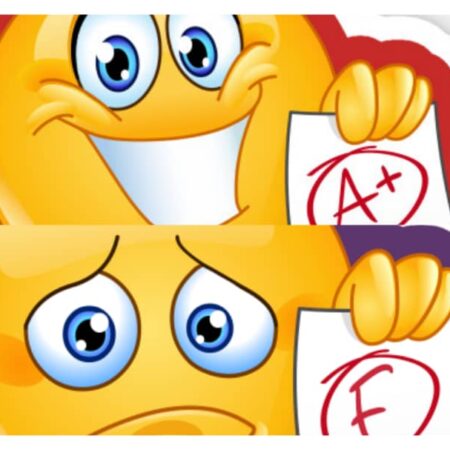40+ Phd Research Topics In Curriculum Studies [2026]
40+ Phd Research Topics In Curriculum Studies [2024]
Ph.D. research in curriculum studies is a broad and diverse field that comprises a wide range of topics related to the design, development, and implementation of educational programs.
Major areas of focus for a PhD research in Curriculum Studies include:
Curriculum theory and development: This field of research investigates the curriculum’s philosophical, historical, and social roots, as well as the processes involved in establishing and producing new curricula.
Curriculum evaluation: This field of research is concerned with determining the efficiency of educational initiatives.
Curriculum policy: This area of study examines the policies that affect curriculum development and implementation.
Curriculum and instruction: This area of study focuses on the relationship between curriculum and teaching methods.
Curriculum and social justice: This field of research investigates how curricula may either support or impede social justice.
Curriculum studies PhD research can be undertaken using a range of methodologies, including qualitative, quantitative, and mixed methods approaches. Among the various research methodologies widely employed in this sector are:
Case studies: Case studies are in-depth studies of individual curriculum programs or initiatives.
Surveys: Surveys are used to collect data from a large sample of people, such as teachers, students, or parents.
Interviews: Interviews are used to collect in-depth data from individuals, such as teachers, curriculum developers, or policymakers.
Document analysis: Document analysis is used to analyze a variety of documents, such as curriculum guides, textbooks, or policy documents.
Action research: Action research is a type of research that is conducted by practitioners in order to improve their own practice.
Below are some of the major PhD research topics in Curriculum Studies
- The Role Of Mindfulness Practices In Promoting Mental Well-Being And Academic Performance
- The Effectiveness Of Inquiry-Based Learning In Promoting Scientific Literacy And Critical Thinking Skills
- The Role Of Arts Education In Fostering Creativity, Self-Expression, And Social-Emotional Development
- The Effectiveness Of Collaborative Learning Strategies In Promoting Teamwork, Communication, And Problem-Solving Skills
- The Role Of Financial Literacy Education In Preparing Students For Financial Independence And Responsible Decision-Making
- The Effectiveness Of Early Childhood Education Programs In Promoting School Readiness And Long-Term Academic Success
- The Effectiveness Of Differentiated Instruction In Meeting The Diverse Needs Of Learners
- The Role Of Teacher Professional Development In Promoting Effective Curriculum Implementation And Student Learning
- The Impact Of Standardized Testing On Curriculum Development And Instruction
- The Effectiveness Of Project-Based Learning In Promoting Deep Learning And Critical Thinking Skills
- The Role Of Global Citizenship Education In Fostering Intercultural Understanding And Social Responsibility
- The Impact Of Personalized Learning On Student Achievement And Engagement
- The Impact Of Gamification On Student Engagement And Motivation
- The Role Of Technology In Promoting Accessibility And Equity In Education
- The Development Of Culturally Inclusive Curricula In Globalized Education
- The Role Of Social And Emotional Learning (SEL) In Curriculum Development
- The Impact Of Artificial Intelligence (AI) On Curriculum Design And Implementation
- The Impact Of COVID-19 On Curriculum Design And Implementation
- The Integration Of Mindfulness Practices Into Curriculum Frameworks
- The Challenges And Opportunities Of Teaching In An Urban School Setting
- The Role Of Parents And Communities In Education
- The Importance Of Collaboration And Professional Development For Teachers
- The Challenges And Opportunities Of Teaching In A Diverse Classroom
- The Role Of Teachers In Curriculum Implementation And Evaluation In Secondary Schools
- The Development Of Effective Curriculum Evaluation Strategies For Secondary Schools
- The Use Of Data To Inform Curriculum Improvement In Primary Schools
- The Factors That Influence Successful Curriculum Implementation In Primary Schools
- The Role Of Technology In Curriculum Design And Implementation In Rural Secondary Schools
- The Impact Of Curriculum Design On Student Learning And Achievement In Public Secondary Schools
- The Role Of Technology In Curriculum Design And Development In Primary Schools
- The Development Of Culturally Responsive Curricula In Nursery Schools
- The Design Of Curricula That Promote Equity And Social Justice In Universities
- The Impact Of Curriculum Standards On Teaching And Learning Among Students In Universities
- The Factors That Influence Successful Curriculum Implementation In Secondary Schools
- The Use Of Data To Inform Curriculum Improvement In Public Primary Schools
- The Development Of Effective Curriculum Evaluation Strategies In Secondary Schools
- The Role Of Teachers In Curriculum Implementation And Evaluation In Missionary Schools
- The Impact Of Curriculum Reform On Teaching And Learning In Primary Schools
- The Development Of Culturally Responsive Curricula In Public Universities
- The Design Of Curricula That Promote Equity And Social Justice In Private Universities
- The Impact Of Curriculum Standards On Teaching And Learning In Secondary Schools
- The Factors That Influence Successful Curriculum Implementation In Private Universities
Check out: Curriculum Studies Topics with Materials









Leave a Reply